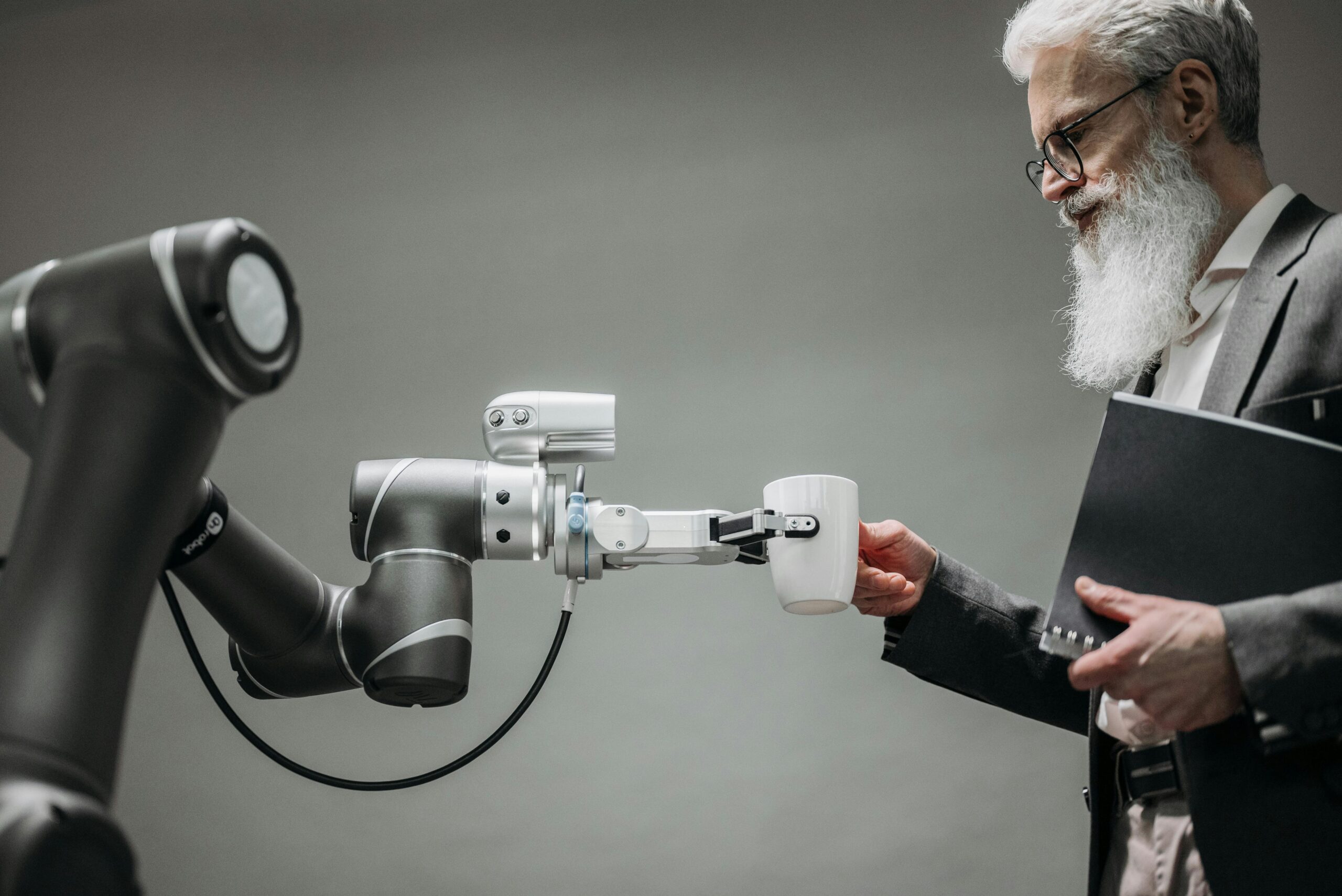The Future of The Workplace with AI
Concerns Over AI in The Workplace
Much has been said and concerns have been raised regarding the impact and influence of Artificial Intelligence in the way we do work and conduct business, despite AI’s popularity and appeal reaching mainstream and cultural heights in just the last few years. Most of these reservations stem from the thought of machines replacing people, as AI is continually applied to automate tasks, optimize efficiency and cut down costs wherever and whenever possible. But is the workplace of the future looking to be that dire and devoid of human ministration with the ever-increasing utilization of AI?
The Wall Street Journal did a good job of trying to answer that question by asking several top thinkers on this subject for their point of view. This article touches on those viewpoints and provides some of our own.
Many people fear that our growing dependency on AI could lead to indiscriminate and thoughtless applications, which may result in huge and unintended errors, perhaps even to the point of irreparable consequences. Even well-intentioned initiatives might bear inadvertent effects with one example being the use of digital assistants. Jonathan Gratch, professor of computer science at the University of Southern California, shares some insights from their research that indicates the weakening of emotional bonds and social checks present in a traditional team setup, or even in typical face-to-face negotiations. These ethical checks are reduced when AI-based virtual or digital assistants are involved, with interactions becoming more transactional and self-interested. Some people have also been observed instructing AI to channel deception and manipulation in order to gain unfair advantage.
Deliberate unethical usage is cause enough for alarm and worry as Stuart Madnick, professor of information technologies at the MIT Sloan School of Management, pointed out that AI makes scamming involving the use of personal details much easier and more dangerous. Whereas hackers and scammers were traditionally selective of who they victimize based on the ratio of the money they would be swindling to the effort and time involved to get the scheme going, an AI-driven con could widen the net they cast to include targets of lesser finances and resources they would normally not go after. In an office environment, this might mean AI-generated emails or phone or video calls with deep fakes that are so convincing an unsuspecting employee might transfer funds upon the instructions of their “boss.”
Sherry Turkle, author and Abby Rockefeller Mauzé Professor of the Social Studies of Science and Technology at the Massachusetts Institute of Technology, also points out the effects of pretend-empathy machines that are now commonly being employed for job interviews and performance assessments. When the opportunity to be hired or retain one’s job depends on AI judging and scoring us based on qualities it values the most, we might find ourselves training or adjusting “to please the machines.”
Opportunities at The Workplace with AI
But it’s not all sad and gloom for the workplace of tomorrow with AI. One can also find opportunities if they’re able to look past all that uncertainty and apprehension. AI technology is bridging us to the future, but human intelligence can ultimately shape how that bridge is formed.
Circling back to task automation, this could mean that organizations would eventually have fewer employees and fewer layers of management. Depending on perspective and needs, this could either be the bane sceptics have been heralding or the boon that would serve as the catalyst for more change. With routine tasks having been automated, this would open up avenues to explore on what new work you could assign to your employees that a machine simply could not perform. You might also find some middle-tier work that could be trickled down to lower or greener employees, challenging them and helping them grow within your organization. This could also reduce the need to hire for midcareer posts outside your company which is a likely recourse if an organization is unable to grow their own talents in-house.
Alberto Rossi, finance professor and director of the AI, Analytics and Future of Work Initiative, at Georgetown University, shared that asset managers are now hiring more human advisers instead of laying them off, a result of offering hybrid advisory services that involve both human input and algorithms. The advisory service algorithms are assigned certain simple tasks while advisory personnels provide that essential human connection that’s key to client satisfaction and retention.
With the right data, AI tools and data analytics can transform not only how companies find and recruit talents but also build for the future with team recommendations and identifying organizational gaps. Guided by human judgment, AI can boost better collaboration and productivity at the workplace. Generative AI such as ChatGPT has been found likely to improve the productivity of all workers, especially low-skilled workers who appreciate the availability of such tools, helping narrow the productivity gap between this group and their higher-skilled peers.
An interesting development is the possible rise in value of workers older in age. The experience and knowledge they gain through the years can be leveraged to identify which issues need the most attention and immediate or timely resolution along with validating AI-based solutions and recommendations. Investing in further training and upskilling can also lead the way to improved AI utilization and collaboration; just as AI makes automated customer interaction feel much more natural, AI services can decrease complexity with coaching and continued education at the workplace with conversational interfaces and natural-language processing. This reduction in complexity can also extend to AI-powered “concierge” systems when assisting employees seeking benefits and services from their employer.
Ultimately, these exercises in the utilization and collaboration with AI can pave the road for organizational development from task-oriented AI to goal-oriented AI.
Transforming The Workplace with AI
As you might have noticed, we’ve painted two different futures for the workplace with AI: one conveying caution and warning, the other promoting potential and exploration. One of the key differences that separate both realities is the thoughtful and ethical application of AI. At Cascade Strategies, we’ve always advocated for the “Appropriate Use of AI” as we firmly believe that the effective and productive application of AI in shaping the future can only be achieved when tempered with human values and experience.
The AI boom has driven organizations and businesses to rethink the workplace. And in the midst of all the automation and optimization that would involve, we are hopeful that there’s always room for high level and inspired human thinking, the kind that unlocks genuine breakthroughs and achieves true excellence.
Featured Image Copyright: beasternchen
Top Image Copyright: Anna Shvets

Tell us how we can help you
Cascade Strategies can serve your market research needs from the most straightforward to the most sophisticated project. Don’t hesitate to contact us to tell us about your next project, or your overall research needs in general. You can call (425) 677-7430 and ask for Jerry, Nestor, or Ernie. Or send us an email at info@cascadestrategies.com. We’ll get back to you quickly!
subscribe





